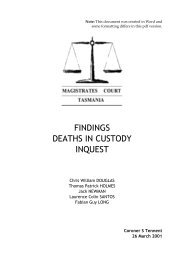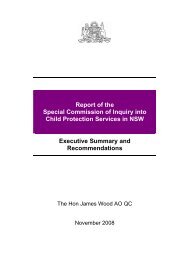R V BIRKS
R V BIRKS
R V BIRKS
You also want an ePaper? Increase the reach of your titles
YUMPU automatically turns print PDFs into web optimized ePapers that Google loves.
"... His legal right is to conduct the cause without any regard to the<br />
wishes of his client, so long as his mandate is unrecalled, and what he<br />
does bona fide according to his own judgment will bind his client, and<br />
will not expose him to any action for what he has done, even if the<br />
client's interests are thereby prejudiced."<br />
In Halsbury's Laws of England, 4th ed, vol 3(1), par 518 at 420, it is stated<br />
that:<br />
"... a barrister is ordinarily instructed on the implied understanding<br />
that he is to have complete control over the way in which the case is<br />
conducted. Unless and until his instructions are withdrawn, counsel has,<br />
with regard to all matters that properly relate to the conduct of the case,<br />
unlimited authority to do whatever he considers best for the interests of<br />
his client. This authority extends to all matters relating to the action,<br />
including the calling and cross-examination of witnesses, challenging a<br />
juror, deciding what points to take, choosing which of two inconsistent<br />
defences to put forward, and even to agreeing to a compromise of the<br />
action, or to a verdict, order or judgment."<br />
(See also R v Edwards Underwood and Edwards (1848) 3 Cox CC 82; Hatch v<br />
Lewis (1861) 2 F&F 467; 175 ER 1145, Matthews v Munster (1887) 20 QBD<br />
141 and Rowe v Australian United Steam Navigation Co Ltd (1909) 9 CLR 1<br />
at 24 per Isaacs J.)<br />
There is an evident tension between those principles, on the one hand, and<br />
on the other hand, the power and duty of a Court of Criminal Appeal to<br />
correct a miscarriage of justice. It would be wrong, however, simply to<br />
regard these as two competing considerations which must from time to time<br />
yield to some compromise. The principles as to the role of counsel, and the<br />
capacity of counsel to bind the client, are fundamental to the operation of<br />
the adversary system, and form part of the practical content of our notions of<br />
justice.<br />
It sometimes happens that a person who has been convicted of a crime<br />
seeks to have the conviction set aside on the ground that counsel at the trial<br />
has acted incompetently, or contrary to instructions. It is well settled that<br />
neither of these circumstances will, of itself, attract appellate intervention. At<br />
the same time the courts acknowledge the existence of a power and duty to<br />
quash a conviction in some cases. The difficulty is to find, in the authorities,<br />
a formula which adequately and accurately defines the class of case in which<br />
a Court of Criminal Appeal will intervene. A common theme running<br />
through the cases, however, is that such intervention is a matter about which<br />
the courts are extremely cautious.<br />
The existence of a power of intervention was acknowledged in this State by<br />
Cullen CJ in R v McCall (1920) 20 SR (NSW) 467 at 472-473; 37 WN<br />
(NSW) 189 at 192, where his Honour, in considering the consequences of<br />
failure to call alibi evidence at a trial said:<br />
"... There are so many potentialities of mischief in reopening the<br />
verdict of the jury on the suggested evidence of additional witnesses on


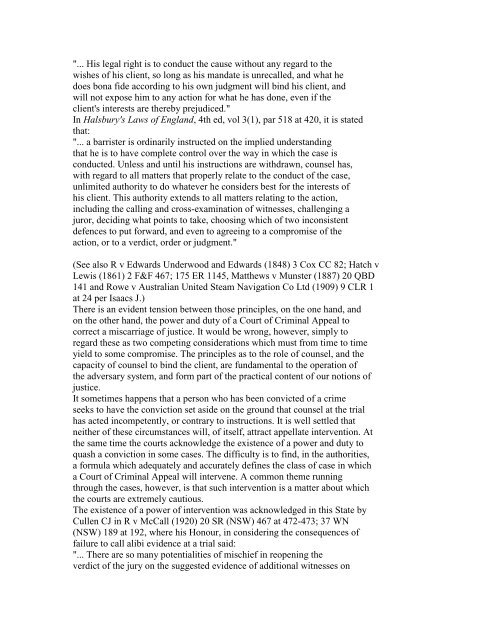
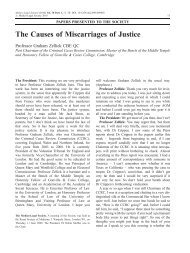
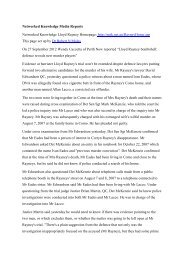
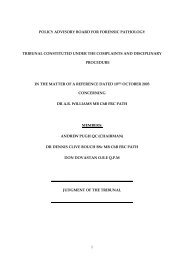
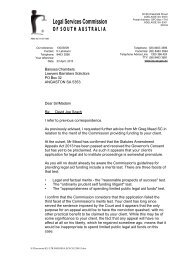
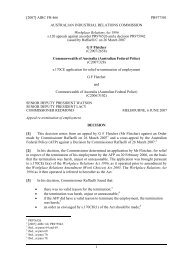
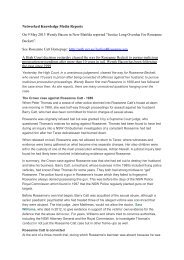
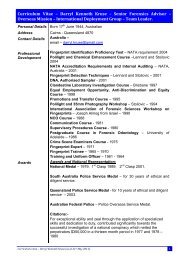
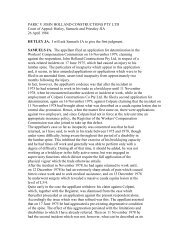
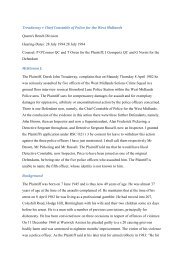
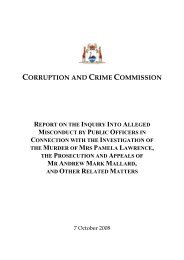
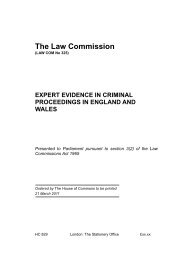

![R v Gilham [2012] NSWCCA 132 - verdicts of acquittal](https://img.yumpu.com/40383571/1/184x260/r-v-gilham-2012-nswcca-132-verdicts-of-acquittal.jpg?quality=85)
